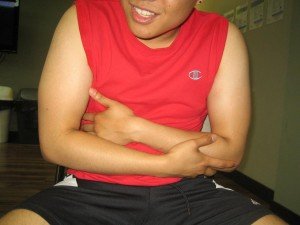Amebiasis is a parasitic infection of the intestines brought about by the protozoan Entamoeba histolytica. The symptoms of amebiasis include abdominal cramps, loose stool and abdominal pain. Nevertheless, most individuals with amebiasis will not suffer any significant symptoms.
https://www.youtube.com/watch?v=6ikmM_3I_bI&spfreload=1
Who are at risk?
Amebiasis is a common ailment in underdeveloped and tropical countries. Those who are at high risk include:
- Individuals travelling to tropical countries with poor sanitation
- Those living in institutions with poor sanitary conditions
- Individuals with compromised immune systems and other health conditions
Indications of amebiasis
The symptoms of amebiasis typically arise 1-4 weeks after ingestion of the cysts of E. histolytica. Only a small percentage of individuals with amebiasis become sick. The symptoms at this phase are usually mild and include stomach cramps and loose stools.
Once the parasite invades the intestinal lining, it can lead to amebic dysentery. This is a dangerous form of the disease characterized by frequent episodes of watery and blood-streaked stools as well as severe abdominal cramping.

In case the parasites moves into the bloodstream, it can end up in the heart, liver, brain, lungs or other organs where it can cause destruction of the tissues and abscesses. The liver is the usual destination for the parasite which leads to fever and tenderness in the upper right region of the torso.
Management
The treatment for an uncomplicated case of amebiasis generally involves a 10-day course of metronidazole taken orally. The doctor might also prescribe medication to manage nausea if present.
In case the parasite is present in the intestinal tissues, the treatment is aimed not only on the parasite but also on any damage to the affected organs. In some cases, surgery might be required if the colon or the peritoneal tissues have perforations.
Preventive measures
Proper sanitation is vital in preventing amebiasis. The following measures must be strictly followed:
- Thoroughly cleanse vegetables and fruits before eating.
- Avoid food sold by street vendors
- Only use bottled water and beverages
- Water should be boiled or treated with iodine
- Avoid cheese, milk or other unpasteurized dairy products
Generally, make it a point to thoroughly wash hands using water and soap after using the bathroom and before handling any food.
More Information / Disclaimer
The information posted on this page on amebiasis is for learning purposes only. Learn to recognize and manage this type of infection by taking a standard first aid course with Saskatoon First Aid.
